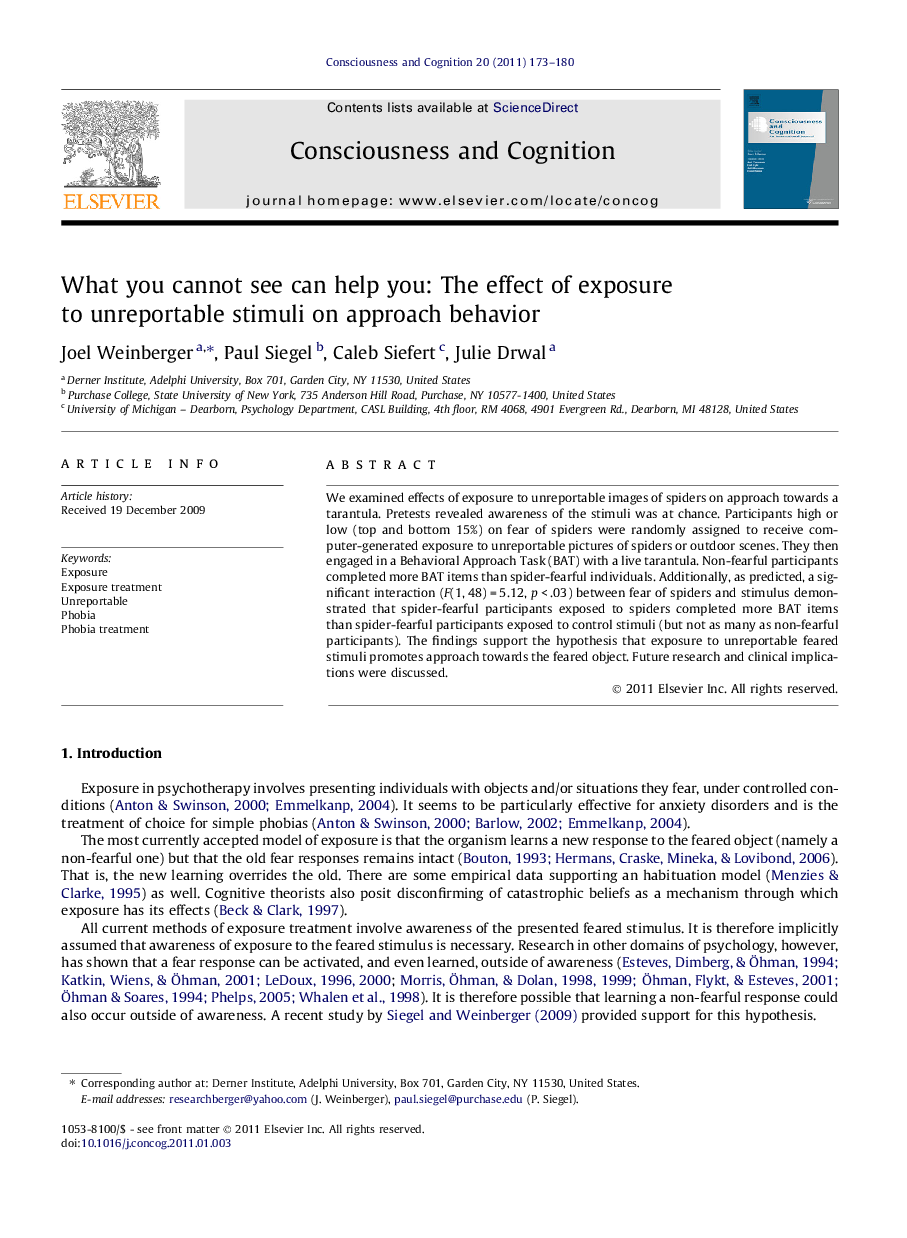| Article ID | Journal | Published Year | Pages | File Type |
|---|---|---|---|---|
| 927692 | Consciousness and Cognition | 2011 | 8 Pages |
We examined effects of exposure to unreportable images of spiders on approach towards a tarantula. Pretests revealed awareness of the stimuli was at chance. Participants high or low (top and bottom 15%) on fear of spiders were randomly assigned to receive computer-generated exposure to unreportable pictures of spiders or outdoor scenes. They then engaged in a Behavioral Approach Task (BAT) with a live tarantula. Non-fearful participants completed more BAT items than spider-fearful individuals. Additionally, as predicted, a significant interaction (F(1, 48) = 5.12, p < .03) between fear of spiders and stimulus demonstrated that spider-fearful participants exposed to spiders completed more BAT items than spider-fearful participants exposed to control stimuli (but not as many as non-fearful participants). The findings support the hypothesis that exposure to unreportable feared stimuli promotes approach towards the feared object. Future research and clinical implications were discussed.
